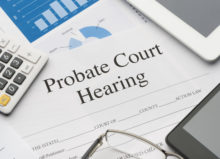What is Domicile and How is it Determined? A 16 Point Checklist.

‘Domicile’ generally refers to where you live – your residence that you intend to keep for the foreseeable future. Your domicile has legal consequences for tax, probate, asset protection, and numerous other purposes.
Domicile issues frequently arise with clients who split their time between Florida and another state. They are also regular issues when clients first move to Florida.
For example, a domicile issue may arise in a probate estate when a decedent lives in Georgia for part of the year and Florida for part of the year. Which state has jurisdiction for the domiciliary probate estate? (This question could be very important if the laws of the different states prefer some heirs over other heirs.)
Another example: A snowbird spends 6 months a year in Florida and 6 months a year in Michigan. Is the Michigan Department of Revenue permitted to impose income taxes on the snowbird’s IRA income?
How Is Domicile Determined?
Part of the complexity of domicile issues is that they arise in so many different contexts and there is no single standard to be followed in determining domicile.
Many clients have heard of a ‘Declaration of Domicile’ that may be filed with the county courthouse. This document is intended to reflect your intent to make Florida your legal domicile. Even this document, however, does not answer all domicile questions.
Further, when state tax questions arise (as in the Michigan snowbird example above), it is necessary to consult the state tax laws of the relevant states. It is entirely possible that an individual may be considered a Florida domicile for one purpose (such as Florida probate issues) but the domicile of another state for another purpose (such as Michigan income taxes).
For example, in answering the question of domicile for purposes of Florida probate, it is customary to look at all of the relevant factors to determine how many factors point to Florida domicile versus domicile in another state. In other words, there is no one single factor that is determinative.
One more complexity: It is possible to live somewhere without that place being your domicile. For example, what if you decide to spend the summer working in Georgia in between semesters at college in Florida. Does that make you a domiciliary of Georgia? Probably not. Periodically, I am asked to provide a ‘Domicile Checklist’. Generally, this request comes from people wanting to divide time between Florida and another state, while obtaining tax or other benefits of Florida residence. Unfortunately, while suggestions for establishing Florida domicile are easy to find (such as the list below), a comprehensive checklist for every situation is likely impossible.
The reason for the difficulty, as mentioned above, is that different rules apply based on the context of the domicile question. For example: (1) Was the decedent a Florida resident? (2) Am I subject to Ohio income taxes? (3) Is my home protected by Florida’s homestead protection? (4) Should I update my trust for Florida law? Each of these questions raises domicile issues, but the analysis for each question differs because the laws involved differ. Just these four examples raise questions based on Florida probate laws, the tax laws of other states, Florida constitutional law, and Florida’s statutes on Wills and Trusts. A single response simply does not suffice.
While a single rule may not be available, it can be useful to think of domicile questions with this in mind: How would you organize your life in Florida if (i) Florida were your only home, (ii) you intended to stay there forever, and (iii) you did not intend to go back and forth with a second state. This general rule may cause you to re-consider your decisions. For example: If Florida is your domicile, why would you have bills mailed to an address in Michigan?
Domicile Checklist
With the foregoing thoughts in mind, here is a short list of factors frequently considered in domicile issues, which may give guidance to those seeking to establish Florida domicile:
- Where are you? You should strive to spend more time in Florida than any other state. Although ‘six months and a day’ is a rule of thumb that is frequently discussed, you may find that your old state taxing authority has a ‘nine months and a day’ rule (see Rule 16!).
- Where do you own real property? It is better to own property in Florida and rent elsewhere, than to own property elsewhere and rent in Florida – it may be better still to own or rent only in Florida. Note also that ‘double probate’ may be required if you die with a Florida domicile while owning real property in another state – probate may need to be opened both in Florida (the domiciliary estate) and the other state (the ancillary estate).
- Where is your most important mail delivered? Bank statements, bills, periodicals, etc. should all arrive at your Florida address.
- What domicile is declared on your Will and other estate planning documents? It is a very good idea to ‘Floridize’ your estate planning documents to state your Florida domicile (and also indicate that Florida law governs the documents).
- Where are your bank accounts, brokerage accounts, etc.? Transfer your accounts to a branch of your bank in Florida or set up accounts with Florida banks.
- Where is your tangible personal property? It may be defensible to have artwork, furniture, and other personal items located in more than state, but it would be reasonable to expect that your most valuable personal property would be located in your Florida home.
- Where do you file and pay federal taxes? Again, it may be viewed as inconsistent to claim Florida domicile but mail your federal tax return from Illinois.
- Do you still pay income taxes to your ‘old’ state? You will typically need to file a partial year final tax return stating the date you officially moved to Florida. Thereafter, you will not file or pay income taxes with your ‘old’ state (with certain exceptions, see Rule 16).
- Did you apply for Florida’s ‘Save Our Homes’ property tax benefit? You should apply if your primary residence is a home you own in Florida.
- Have you filed a Florida Declaration of Domicile? This is an easy document to prepare and file in your Florida county of residence. Like other factors, it is not determinative; but it is another piece of evidence in favor of Florida domicile.
- Where are you registered to vote?
- What state is listed on your driver’s license?
- What state is listed on the license plates of your cars?
- Where do you operate your business? It may be viewed as inconsistent to claim that you live in Florida and run a business in Michigan (although this factor is less compelling today with modern technology).
- Where do you attend religious and social groups? Seek to transfer membership to Florida chapters or join Florida groups.
- MOST IMPORTANT OF ALL: Have you checked with your ‘old’ state to see if there are special requirements? It doesn’t do any good to take all of these steps, only to discover that your ‘old’ state considers yet another factor to be determinative. Check with an attorney or an accountant in your ‘old’ state to be sure.










